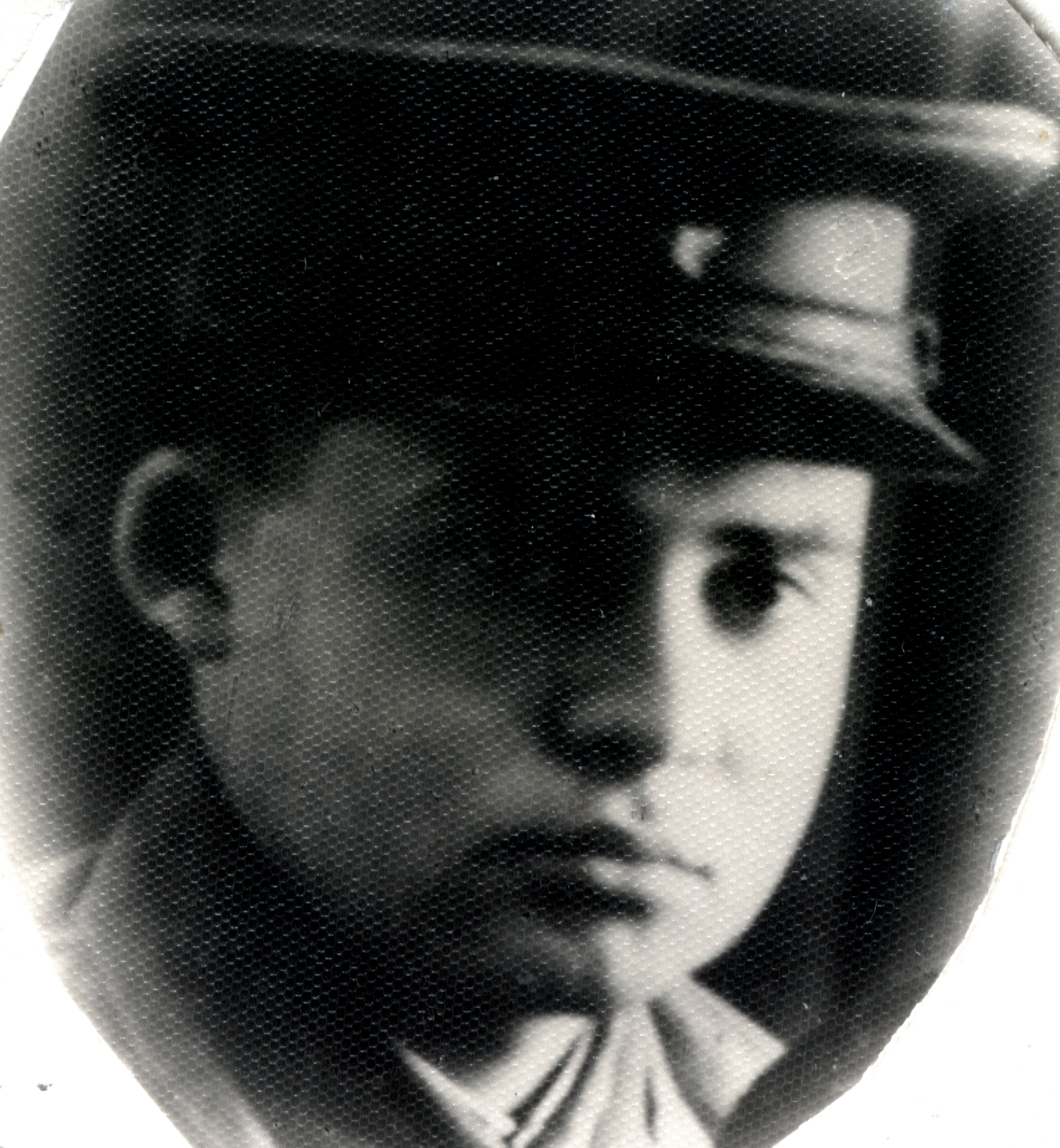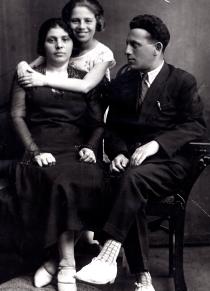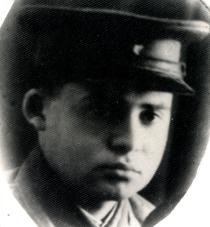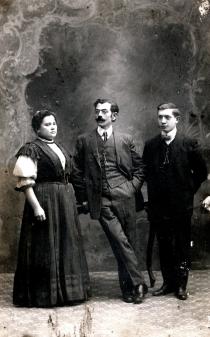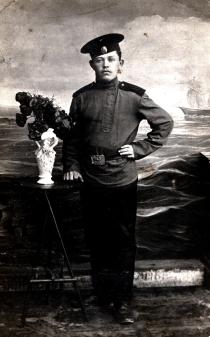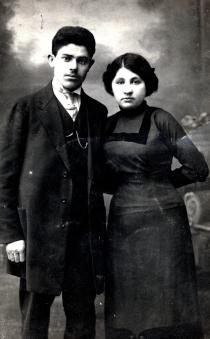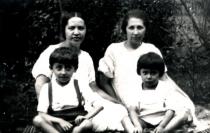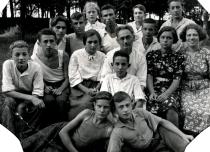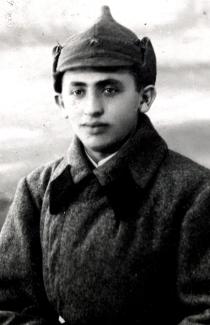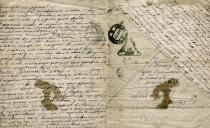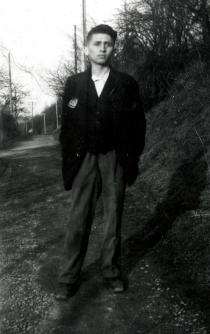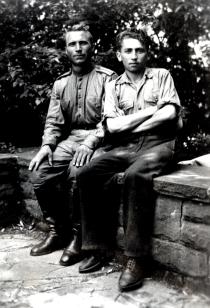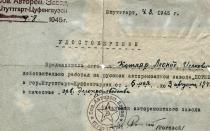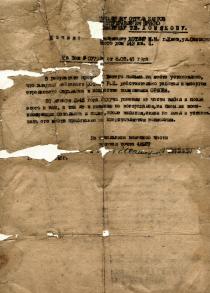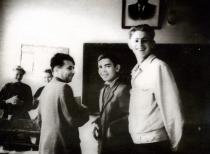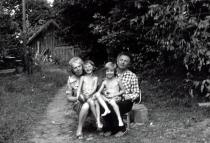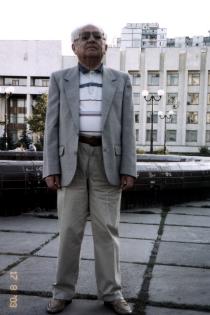My brother Roman Kotliar - cadet of a military school in Ashkhabad. He sent this photo to his relatives in Denau. Ashkhabad, 1943.
A few days before the WWII began my brother Roman finished the 9th grade. He was to turn 17. My brother was a wonderful actor. He acted in the school theater. All girls in his class liked him. He was not tall and very charming. In the first days of July 1941 all boys from Kiev, born before 1925, were sent to Donetsk region, 500 km east of Kiev, to the mines. We bought Roman and dark blue coat before the war. I bundled it and tied with a belt. I put it over his shoulder and here he burst into tears: he had an inner feeling that we were never to see each other again.
Those boys were taken into a shaft. They took away their passports. They had to work hard and many of them ran away including Roman. He went to work as a tractor operator in a kolkhoz. In autumn 1941 German troops came near when Roman was asleep. They knew in the village that he was a Jew. Someone woke him up and gave him a white horse. He ran away. He took a train to Tashkent in Central Asia in 300 km from home. He was sitting by a wall in Tashkent being exhausted and starved. An evacuated doctor from Kiev saw him on her way to work. He told her his story and she took him with her. When he felt better he went to the military registry office to be sent to the front. He was so thin that the commission decided he was ill. However, he stood his ground and they sent him to a military school in Ashkhabad (today Turkmenistan).
Roman wrote about his school and invited my father to visit Ashkhabad. My father managed to travel there once and Roman told him his story. Roman was promoted to junior lieutenant and in the late fall of 1944 he was sent to the front. Their train stayed in Kiev few days. He stayed with his friends. His classmate girls arranged a farewell party for him. Roman was assigned to 146th rifle battalion. He was a Komsomol leader of the battalion. They were like commissars: they were the first to rise in attack and the others followed them. In early 1945 my father stopped receiving letters from Roman. He wrote his commander and received his reply: 'On 26 January 1945 he was wounded and left our division. He never returned to our division and none of our military had any contacts with him'. Roman never wrote anyone: he died from wounds on the way to hospital.
